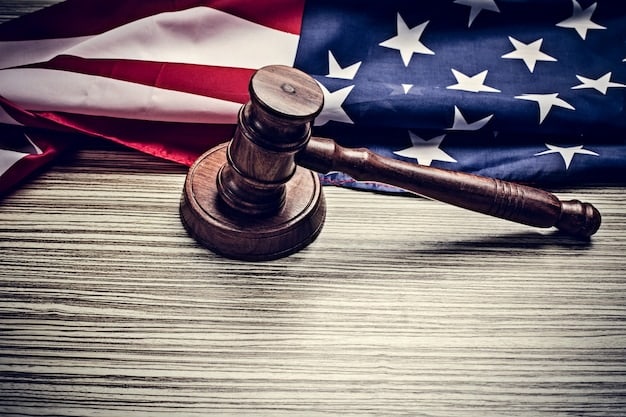Political protest laws: what you need to know

Anúncios
Political protest laws vary significantly across countries, impacting citizens’ rights to assemble and express their views, with recent changes reflecting shifting societal norms and government responses.
Political protest laws are crucial for understanding how citizens express their rights and opinions. Have you wondered how these laws affect your ability to protest peacefully? Let’s explore this important topic together.
Understanding political protest laws
Understanding political protest laws is essential for every citizen who wants to express their views peacefully. These laws govern how, when, and where individuals can gather to demonstrate their opinions. It’s important to know that these laws can vary widely from country to country.
Political protest laws often aim to balance the right to free speech with public safety concerns. In many regions, permits may be required for large gatherings, while spontaneous protests might be subject to restrictions.
Key Components of Protest Laws
Some common elements found in political protest laws include:
Anúncios
- Requirements for permits and notices before a protest.
- Regulations on the location and time of protests.
- Provisions for public safety and law enforcement involvement.
For more detailed information about protest laws and your rights, you can visit the ACLU’s official page on the subject. They provide valuable resources to help individuals understand their rights when it comes to protesting.
The impact of protest laws on civil liberties
The impact of protest laws on civil liberties is a vital area of concern. These laws often shape how individuals express their opinions and can directly affect the right to free speech. Understanding their implications helps citizens know their rights.
When restrictions are placed on protests, it can limit the ability of people to gather and voice dissent. This, in turn, can infringe upon their fundamental rights.
Key Effects on Civil Liberties
Here are some major effects these laws can have:
- Infringement on the right to assemble peacefully.
- Potential criminalization of spontaneous protests.
- Impact on marginalized communities that may rely on protest as their voice.
The importance of protecting civil liberties cannot be overstated. For more information on how to navigate these complex laws, visit the ACLU’s resource on protest rights, which provides extensive tools and guidelines for understanding your rights.
How different countries regulate protests

Regulation of protests varies significantly across the globe. Different countries have distinct approaches to managing the right to protest based on their legal systems and societal values. Understanding these differences helps clarify the landscape of political protest laws.
In some nations, peaceful assemblies are deeply protected, while others impose strict limitations. Knowing how various countries regulate protests can shed light on the complexities involved.
Examples of Regulations by Country
Here are some examples of how different countries manage protests:
- United States: The First Amendment grants broad protections for peaceful protests, although permits may be required in certain situations.
- United Kingdom: The Public Order Act allows for police oversight and can impose conditions on protests to ensure public safety.
- China: Protests are heavily restricted, and most public demonstrations require government approval.
For detailed insights on protest regulations around the world, you can check the Library of Congress website, which offers an extensive breakdown of different countries’ laws regarding protests.
Recent changes in political protest legislation
Recent changes in political protest legislation reveal how governments adapt to social movements and public pressure. These changes can significantly impact how citizens exercise their rights. Understanding these shifts is crucial for anyone involved in activism or interested in civic engagement.
In many places, new laws have emerged that either enhance or restrict the abilities of individuals to organize and protest peacefully.
Notable Recent Changes
Here are some examples of recent legislative changes:
- Some states in the U.S. have passed laws that require permits for public assemblies.
- In several countries, laws have been introduced to protect protestors from retaliation by authorities.
- Some regions have seen increased penalties for unauthorized protests, raising concerns about public dissent.
For a deeper overview of these changes and their implications, you can visit the Human Rights Watch website, which tracks developments in protest laws globally.
Tips for navigating protest rights
Navigating protest rights can be challenging, especially with varying laws across different regions. Knowing your rights helps ensure that you can participate safely and effectively. Here are some valuable tips for activists.
Understanding the local laws regarding protests can empower individuals to express their views confidently.
Essential Tips for Protestors
Consider these important tips when participating in a protest:
- Always check the local laws about permits. Some areas require permits for gatherings.
- Be aware of your rights regarding freedom of speech and assembly.
- Document your experience through photos or videos, but respect the privacy of others.
For comprehensive resources on protest rights and legal guidelines, visit the ACLU’s website, which offers useful insights and information for protestors.
Understanding political protest laws is crucial for ensuring that your voice is heard. As you navigate these laws, remember to stay informed about your rights and the local regulations. By knowing what is permitted, you can participate safely in protests and effectively advocate for the causes you care about. Your right to protest is an important part of democracy, and staying educated empowers you to take action confidently.





